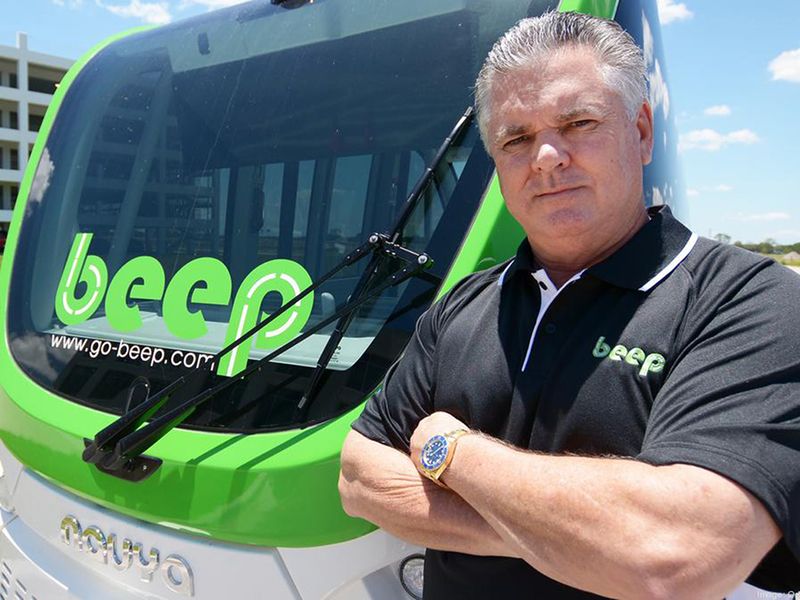
The latest attraction at Yellowstone National Park will have nothing to do with majestic mountains or gushing geysers.
Beep, a Florida-based mobility-services operator, says it will deploy two autonomous shuttles at the park starting in May 2021. The pilot program will be operated in conjunction with the National Park Service and help provide transit in the park’s Canyon Village.
Exact routes and stops remain in the planning stages, and human safety drivers remain on board. The service will do more than ferry visitors around the area –- it will likely be the first experience many people have with an autonomous vehicle.
“This is really smart,” says innovation strategist Grayson Brulte, a co-founder of consulting company Brulte and Co. “Beep is going in and operating in a controlled environment within a national park, you’re exposing the public to that technology in a low-risk environment, all while reducing congestion and CO2 emissions in the park.”
Beep occupies something of a unique position in the mobility world. It neither makes vehicles nor self-driving software. It’s strictly an operator of transportation services. The company launched in September 2019 and has transported more than 16,000 riders around a 17-square-mile planned community in Lake Nona, Fla.
Its work in Yellowstone National Park is part of an initiative in which park officials are testing a range of pilot projects that aim to enhance the visitor experience. Beep operates vehicles produced by Navya, a French company that manufactures in southeast Michigan, and Local Motors, a Phoenix-area maker of 3D-printed shuttle buses. Beep has not yet said which vehicles will be used in the Yellowstone pilot project.
“This demonstration will help assess how emerging technologies can enhance the visitor experience while making the roads safer and less congested for everyone,” Beep CEO Joe Moye said in a written statement.